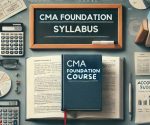The B Com 1st year subjects are expected to set the foundation for students in the Bachelor of Commerce program, which exposes them to the core topics in accounting, business management, and economics. Such subjects aim to equip the students with sound knowledge of commerce principles and put them in good stead for the advanced topics covered in the second and third years. The first year covers the essentials of financial accounting, business organization, and economics for a broad foundation that can take the student to subsequent professional courses along with a range of careers.

What is B Com?
BCom is a broad undergraduate course, focusing on the many different aspects of commerce and business. It is an all-inclusive program covering financial accounting, business law, economics, taxation, and management.
The B Com program is offered in different formats such as B Com General, B Com Hons, and specializations like CA after Bcom. This course readies the student for professional roles as well as for competitive exams. Simultaneously, it is flexible enough to let students specialize in areas like finance, marketing, or entrepreneurship.
B Com 1st Year Subjects List
The B.Com 1st-year subjects lay the basis for the understanding of commerce, business, and economics. These subjects introduce the key ideas and competencies that are important to building a solid base in financial management, business operations, and principles in economics.
| Course Title | Type | Description |
| Environmental Studies | Ability Enhancement (AECC) | Covers environmental issues, sustainability, and ecological awareness to develop a sense of responsibility. |
| Financial Accounting | Core Course (DSC) | Focuses on principles, procedures, and preparation of financial statements for businesses. |
| Business Organisation and Management | Core Course (DSC) | Explores the structure, management, and functioning of businesses and organizations. |
| Principles of Micro Economics | Generic Elective (GE) | Examines the economic behaviour of individuals and firms, focusing on demand, supply, and markets. |
| New Venture Planning | Generic Elective (GE) | Provides insights into starting and managing new business ventures. |
| Language: English/Hindi/Modern Indian Language | Ability Enhancement (AECC) | Develops communication skills and proficiency in the chosen language. |
| Business Laws | Core Course (DSC) | Covers legal principles and frameworks governing business operations, contracts, and practices. |
| Business Mathematics and Statistics | Core Course (DSC) | Teaches mathematical and statistical tools for solving business and economic problems. |
| Principles of Macro Economics | Generic Elective (GE) | Studies overall economic performance, including GDP, inflation, and fiscal policies. |
| Economics of Regulation of Domestic and Foreign Exchange Markets | Generic Elective (GE) | Explores policies and regulations impacting domestic and international financial markets. |
Bcom 1st semester Subjects
The number of subjects in the BCom 1st semester varies with the offering college or university. However, some general subjects are offered in almost every college during the BCom 1st semester. You can find the common subjects below:
- Financial Accounting: It teaches how to prepare financial reports for business transactions. It covers the preparation of income statements, balance sheets, and so forth for different kinds of companies.
- Business Organisation and Management: You’ll learn how business functions and what management principles apply to a business.
- Environmental Studies: In this course, you will study how the environment affects businesses and vice versa. More emphasis is on sustainability and responsibility.
If you are exploring professional finance qualifications, check out our detailed guide on What is ACCA.
Bcom 2nd semester Subjects
The number of subjects in the BCom 2nd semester varies depending on the college or university offering. However, some general subjects are offered in almost every college during the BCom 2nd semester. You can find the common subjects below:
- Business Law: The course deals with all the business laws in India. You will be learning about the legal aspects and regulatory compliance relating to business and understanding legal principles and frameworks.
- Business Mathematics and Statistics: This course will educate you on mathematics and statistics techniques used in business to analyze data effectively.
Bcom 1st Year Syllabus
There are 2 semesters in Bcom’s 1st-year syllabus, which provides the basics necessary to complete subsequent advanced years’ courses. Bcom 1st year Syllabus generally differs in some aspects based on colleges, but overall, the major part is the same across colleges. Kindly look through the syllabus for Bcom 1st year from the table:
| BCom 1st Year Syllabus | |
| Semester 1 | Semester 2 |
| Financial Accounting | Business Law |
| Business Organisation and Management | Business Mathematics and Statistics |
| Environmental Studies | Principles of Macro Economics |
| English Language | – |
B Com (Hons) 1st Year Subject List
The curriculum of the Bcom Honours is more comprehensive and enhanced as compared to the normal Bcom. The major variation between the two options relates to the depth of coursework; Bcom Honours deals with specialized materials in finance and business. First-year subjects for the two options, although similar, differ slightly in content and focus.
First-year subjects include the following in Bcom Honours:
| BCom (Hons) 1st Year Subjects | ||
| Financial Accounting | Business Economics | Foreign Trade |
| Business Law | Business Organisation and Management | Business Law/Corporate Law |
| Financial Management | English Language | Second Language |
B.Com (Hons) 1st Semester Subjects
The first semester of B.Com (Hons) is designed to help students build a solid foundation in accounting, economics, laws, mathematics, and communication skills. This semester prepares students to understand how businesses work, how financial transactions are recorded, and how markets function. It also develops essential analytical and problem-solving skills. Below is the detailed list of subjects along with their explanations.
1. Financial Accounting
Financial Accounting teaches the process of recording, classifying, and summarising business transactions. Students learn the rules of debit and credit, preparation of trial balance, and the creation of financial statements such as the Profit & Loss Account and Balance Sheet. The subject also covers depreciation methods, inventory valuation, and the rectification of errors. This course builds the base for advanced accounting topics in later semesters.
2. Business Laws
Business Laws introduces students to the legal framework within which businesses operate in India. It covers the Indian Contract Act, 1872, Partnership Act, 1932, and Sale of Goods Act, 1930. Students learn how contracts are formed, executed, and enforced, and how disputes are resolved. Understanding legal obligations helps students in avoiding business risks and complying with the law.
3. Microeconomics
Microeconomics focuses on individual economic units like consumers, firms, and industries. Topics include demand and supply theory, elasticity, consumer behavior, production and cost concepts, and market structures such as perfect competition, monopoly, and monopolistic competition. This subject develops analytical skills that are essential for business decision-making and pricing strategies.
4. Business Communication (AECC)
Business Communication equips students with effective communication skills for corporate environments. It includes report writing, email etiquette, business letters, presentation skills, and verbal communication techniques. Clear and professional communication is key to career success, and this course ensures students can present their ideas confidently.
5. Business Mathematics & Statistics – Part I
This subject introduces quantitative tools used in business decision-making. Mathematics topics include functions, equations, matrices, and linear programming, while statistics covers measures of central tendency (mean, median, mode) and dispersion. This course helps students interpret business data, solve optimisation problems, and make informed decisions.
6. Generic Elective (GE)
In the NEP framework, students choose a Generic Elective from a different discipline to broaden their knowledge. Options can include Political Science, Psychology, Sociology, History, or Computer Applications. This flexibility allows students to explore subjects beyond commerce, enhancing their overall skill set.
B.Com (Hons) 2nd Semester Subjects
The second semester of B.Com (Hons) builds upon the foundations laid in the first semester. Students advance in accounting, economics, mathematics, and business management while also gaining insights into corporate governance and the Indian business environment. This semester focuses on applying theoretical concepts to practical situations and preparing students for higher-level courses in upcoming semesters.
1. Corporate Accounting
Corporate Accounting deals with the preparation of company accounts as per the Companies Act, 2013. Students learn about the issue of shares and debentures, redemption, buy-back, and the preparation of final accounts for companies. It also covers accounting for amalgamations, absorptions, and internal reconstructions. This subject is crucial for understanding the financial health of corporations.
2. Corporate Laws
Corporate Laws focus on the legal aspects governing incorporated businesses in India. It includes provisions of the Companies Act, 2013 related to company formation, management, meetings, directors’ duties, and winding up. Students also learn about corporate governance, compliance requirements, and the role of regulatory authorities such as SEBI. This knowledge is vital for careers in company secretarial practice, corporate consultancy, and compliance management.
3. Macroeconomics
Macroeconomics shifts the focus from individual units to the economy as a whole. Topics include national income accounting, inflation, unemployment, monetary policy, fiscal policy, and international trade. Students also study how government policies affect the overall economy. This subject helps future managers and entrepreneurs understand business cycles and economic indicators that influence decision-making.
4. Environmental Science (AECC)
Environmental Science raises awareness about environmental issues and sustainable development. It covers ecosystems, biodiversity, pollution control, waste management, and climate change. The course also examines environmental laws in India and corporate environmental responsibility. This subject aligns with UGC guidelines to promote environmental consciousness among students.
5. Business Mathematics & Statistics – Part II
This continuation of Part I includes advanced mathematical tools such as calculus, probability, and time value of money, along with statistical concepts like correlation, regression, index numbers, and hypothesis testing. These skills are widely used in finance, marketing research, and business analytics.
6. Generic Elective (GE)
Students choose another GE subject from outside the commerce discipline, such as Computer Applications, Political Science, Sociology, or Foreign Languages. This diversification encourages a multidisciplinary approach and broadens career opportunities.
How is Bcom (Hons) Different?
Bcom (Hons) aims to provide advanced learning in some specific areas and thus is comparatively more detailed as compared to a regular Bcom course. Its aim is also to equip a student with some analytical and problem-solving skills in the field so that his or her profession is successful and not just average.
It is a very suitable course for those who intend to obtain professional certificates like CA or CFA. The research-based curriculum equips students with the ability to critically analyze situations and prepares them for demanding roles in finance and business. B.Com (Hons) is ideal for students looking forward to rising professionally.
CA Inter & Final Admit Card 2025
Best Books for Bcom Program in 1st Year
Many books are available with topics that come exclusively in Bcom’s 1st year. You should select books to form a strong foundation that will enable you in subsequent years of BCom. Take a look at some of the best books given in the following table. Recommended Books for Bcom 1st Year
| Subject | Recommended Books | Authors |
| Financial Accounting | Financial Accounting | M.C. Shukla and T.S. Grewal |
| Fundamentals of Accounting | R.S. Singhal | |
| Business Economics | Microeconomics | H.L. Ahuja |
| Principles of Economics | N. Gregory Mankiw | |
| Business Mathematics and Statistics | Mathematics and Statistics for Management | K.B. Akhilesh |
| Business Organization and Management | Principles of Management | P.C. Tripathi and P.N. Reddy |
| Environmental Studies | Textbook of Environmental Studies | Erach BharuchaDownload Financical Accounting Guide |
Why BCom is in High Demand?
BCom is one of the most sought-after courses due to its flexibility, high variety of jobs, and affordability.
- Diverse Curriculum: It caters to all commerce areas, so it is quite applicable to many careers.
- Professional Opportunities: A stepping stone for courses such as CA, CS, MBA, and CFA.
- Global Relevance: A BCom degree is recognized throughout the world.
- High Employability: Companies generally hire BCom graduates for employment in accounting, finance, and management.
- Affordable: BCom is relatively inexpensive compared to professional courses.
Bcom 1st year Subjects FAQs
1. What is the main focus of B Com 1st-year subjects?
The main ones are Financial Accounting, Business Economics, Business Mathematics, Business Organization, and Environmental Studies.
2. Are the B Com (Hons) 1st year subjects more different from normal B Com subjects?
Yes, B Com Hons is comparatively a more specific program that does include corporate accountancy and comparatively advanced Economics to derive a deep perception of things.
3. Which books to be read for Financial Accounting in B Com 1st year?
The books of M.C. Shukla, T.S. Grewal, and R.S. Singhal are also recommended to be followed during Financial Accounting.
4. Why BCom?
BCom is highly in demand. There is a reason for the same due to its flexible curriculum, global acceptance, and the scope of employment in various fields like finance, accounts, and management.
5. What are the key skills that BCom students need?
BCom students need numerical skills, problem-solving skills, communication skills, and time management to succeed in academics and in the workplace.


